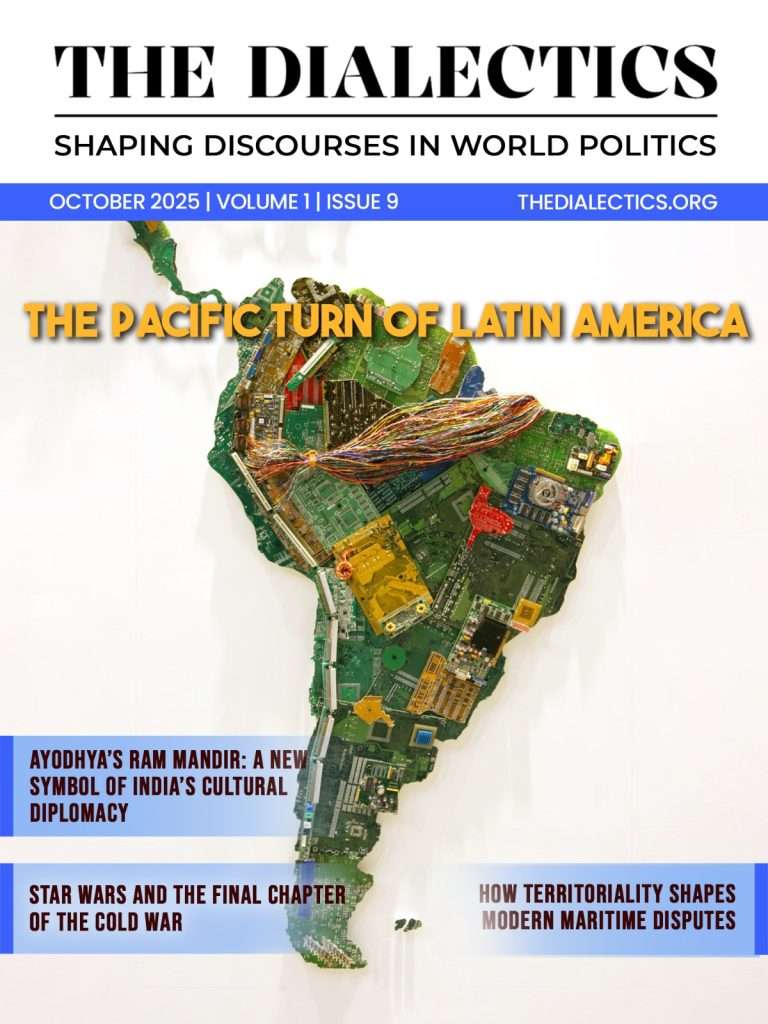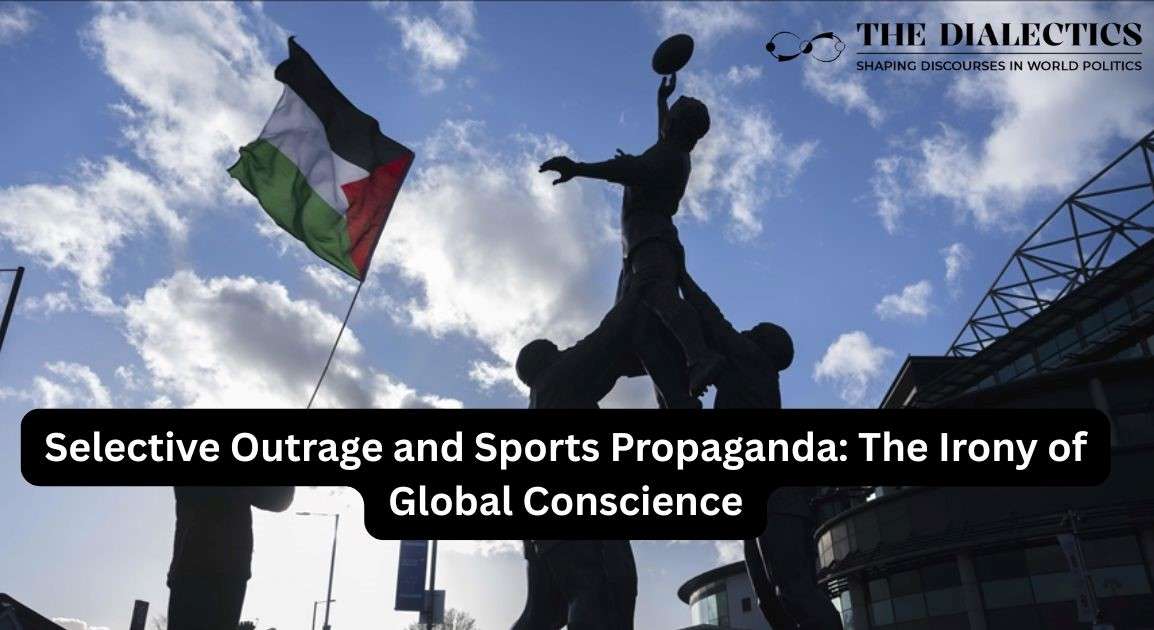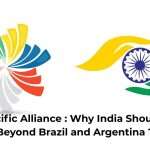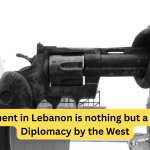In a perfect world, sport would be an apolitical domain, a platform on which competition overlooks politics, ideology, and geography. But the world is far from perfect. Sport, the great international leveler of nations, has also proven to be one of the strongest platforms for propaganda, selective outrage, and moral grandstanding. In recent years, especially in the context of the current Israel–Hamas conflict, the international sporting world has not been neutral. What is remarkable is not the activism per se, but the selectivity of it, the manner in which some conflicts capture the conscience of players, supporters, and media, while others are relegated to footnotes.
Meanwhile, individuals who opt for an alternative moral or political voice, like standing up for sanctioned or disfavored nations, are typically demonized, censored, or deleted from the very platforms that purport to fight “freedom of expression.” This absurdity is particularly apparent in how world responses have been structured around Gaza, and how individuals like Cristiano Ronaldo have been vilified for acts of humanity towards Iran. The paradoxes betray that, in contemporary sport, morality is not absolute but curated.
The Moral Arena: Sports as a Platform for Political Expression
The mythology of “sports as apolitical” has long since come apart. From Tommie Smith and John Carlos’s raised fists at the 1968 Olympics to protesting players kneeling in support of Black Lives Matter, athletes have leveraged their platform to reflect the world’s moral concerns. These gestures used to be revolutionary; now they are near obligatory. Sports have become a reflection of international consciousness, a platform where players are criticized not only for how well they play but also for what they believe about politics. But this change has also brought with it selective moral action. Over the past few months, the Gaza war has elicited a record outpouring of public protests by athletes from all walks of life, footballers revealing pro-Palestinian slogans on their jerseys, players declining to celebrate with Israeli teammates, and Twitter accounts filled with messages calling for justice for Gaza. For some, this is a belated moral awakening: one against occupation, violence, and apartheid.
But the issue is with the selectivity of this indignation. The same international sporting community that protests strongly about Israel’s actions usually remains quiet about atrocities committed elsewhere. Where was this outpour during the ethnic cleansing in Sudan? The killings in Nigeria? The refugee flows in Myanmar or the current ongoing violence in India’s Manipur state? When it comes to black Africans or ethnic minorities, the silence from both athletes and international media is thunderous. This selective solidarity raises a fundamental ethical question: Is solidarity being determined by authentic humanitarian interest or political trend?
The Gaza Exception: The Politics of Visibility
The Gaza crisis holds a singular place in global awareness. Its media salience, historical nuance, and divisive narratives create an extremely emotive cause. To support Palestine has become, for some, an act of symbolic defiance against real or perceived Western hypocrisy. It is not just sympathy for war victims, though. It is also mostly perceived as an anti-imperialist position. This makes the cause fashionably political, a cause that neatly fits the ideology of most global consumers, particularly on social media. Athletes are not spared from trends in this regard. Their activism tends to follow the emotional pulse of the virtual world. Displaying a Palestinian flag or sporting a keffiyeh is taken as a sign of moral righteousness, an effortless means of joining the majority opinion without real engagement with the geopolitical nuances.
Yet, the silence in response to other crises reveals an uncomfortable contradiction. When there was bloodshed in Sudan, murdering thousands and forcing millions out of their homes, the very same influencers and football players who had spoken out so loudly for Gaza were silent. Manipur, in northeast India, had villages torched, naked parades of women, and thousands of people displaced, but it didn’t wake the conscience of even a few international athletes. This discrepancy is not random. It is manufactured and reaffirmed by international media, which weighs in on some conflicts over others based on political affinities and consumer interest. Gaza leads the headlines because it is a moral drama with well-defined villains and victims. Some other conflicts, particularly those in Africa or Asia, are regarded as too “complex,” too remote, or too lacking in narrative definition to evoke viral sympathy. Sports activism thus becomes not a universal expression of humankind but a reflection of what sells morally and visually. y
The Double Standard: When Athletes Support the “Wrong” Caus
Selective silence is one side of hypocrisy, and targeted backlash is the other. When athletes are or appear to be behaving in ways that are beyond dominant Western narratives, they are often subject to immediate censure by media, fans, and governing bodies. Cristiano Ronaldo’s situation is a prime example. Ronaldo is not only noted for his brilliant play on the field but also for his charity work during global crises. In 2023, during a trip to Tehran with Al-Nassr, a harmless act, greeting a disabled Iranian artist and accepting presents from her, was twisted into a political scandal. A few media organizations and social media accounts exaggerated the visit, hinting that he had crossed cultural boundaries or, by implication, supported Iran’s political establishment. Headlines and tweets placed his actions in the category of controversial or ethically questionable, only for fact-checkers to subsequently establish that there was no wrongdoing or sanction. Social media trolls blew these allegations out of proportion, with some suggesting he was “pro-Iranian” or “anti-Western,” distorting public opinion further.
Aside from media criticism, Ronaldo’s actions in West Asia have also attracted censure from international sporting regulators. FIFA and the rest of the Western-aligned establishments tend to apply selective standards: players or countries that behave in line with Western geopolitical agendas are showered with accolades, while those linked to regimes perceived as politically sensitive, such as Iran or Saudi Arabia, are disproportionately criticised. Ronaldo’s move to Al-Nassr, for example, was denounced in Western media as “sports washing” or ethically suspicious, and his behavior on or off the field has been tracked with a political rather than sporting eye.
Ironically, Ronaldo has never publicly endorsed any political regime or government. His involvement has been humanitarian and personal, rather than ideological. Still, even the mere perception of alignment with Iran or playing in Middle Eastern leagues was sufficient to create moral indignation. The same media and institutions that celebrate athletes speaking out on Western-approved causes, like Ukraine or Palestine, too often brand acts beyond this moral landscape as suspect or complicit. This episode is symptomatic of a deeper hierarchy of empathy and enforcement within world sports culture: only suffering, causes, or affinities that align with the narratives of the powerful get amplified or tolerated, and those that do not get minimized, problematized, or punished, whether in media framing, popular backlash, or institutional sanction.
Media, Morality, and Manufactured Consent
In order to understand why some causes, overpower sport activism, one needs to examine how stories are framed. Western media has disproportionate power over what the world sees and perceives. The same channels that televise the Champions League or the Olympics also frame moral debates. They determine which wars are tragic, which are complex, and which it is better to ignore. When players such as Ronaldo, Novak Djokovic, or Mesut Ozil stray from this script, they risk being damaged in their reputation. Ozil’s public denunciation of China’s treatment of Uyghur Muslims in 2019 caused Arsenal to distance itself from him, with Chinese broadcasters even blacking out his games. Compare this to the treatment of players who show solidarity with Gaza in Western progressive circles, their activism being regarded as selfless and courageous. The double standard is not in the goodness of their cause but in the acceptability of their targets.
This selective amplification is what Noam Chomsky once called “manufactured consent”, how media systems decide which moral stands are acceptable. Sports, due to their visual and emotional strength, become a part of this process. Players are rewarded or admonished based on the extent to which their opinions match prevailing political sensibilities.
Athletes as Pawns and Players in Propaganda
These athletes do not always understand how their activism gets co-opted into broader ideological currents. When players speak about Gaza, those gestures are immediately disseminated by political parties, lobbyists, and online movements that try to validate their narrative. And when they remain silent on certain topics, that silence gets weaponised in order to say they are complicit or cowardly.
This presents an impossible choice: speak and risk being politicised, or remain silent and risk being labelled apathetic. The pressure to have each athlete publicly swear allegiance to some cause or another has made sports an ideological battleground. The ease of moral indignation, black and white, victim and oppressor, does not allow for ambiguity.
The Global South and the Politics of Silence
For Global South athletes, pressure is even more intense. They have to operate within Western-dominated sporting systems that incentivise conformity and penalise contestation. Most African and Asian players stay quiet about crises in their own worlds for fear of losing sponsorships or penalties from international governing bodies. African countries that protest racial discrimination are not often given the same worldwide solidarity as are European or American causes. This mirrors the wider colonial hangover in international sports administration. Organisations such as FIFA and the IOC purport neutrality but are heavily invested in geopolitical structures. They suspend Russia for invading Ukraine, but permit attendance by countries fighting other wars or occupations. They penalise political slogans on shirts but accept symbolic gestures when they fit Western moral narratives. Sports, therefore, cease to be a fair playing field but a reflection of global power, with the West monopolising moral legitimacy.
A Call for Consistency and Genuine Conscience
None of this is to suggest that athletes must be quiet. To the contrary, their voice can humanise faraway pain and challenge structural injustice. But activism is less moral when it is selective or performative. If solidarity is really about humanity, then it cannot begin with Gaza and end with Sudan. It cannot praise giving to one cause while castigating another based on political geography. The answer is not in muzzling athletes but in broadening the moral vision of sports. The authorities need to ensure that freedom of expression does not remain an exception to the rule, only when the cause is amenable to Western sensibilities. Media institutions need to consider how selective reporting skews public sympathy. And spectators need to be able to separate authentic conscience from performative outrage.
Conclusion: The Irony of the Moral Game
Sports was the world’s strongest metaphor for equality, an arena where politics was defeated by merit. It is now at risk of becoming its opposite: an arena where morality is referred to by ideology. The propagandistic selectivity that pervades international sports activism not only reveals double standards but also the decay of universal ethics.
When the same world that “stands with Gaza” implicitly demonises an athlete for assisting Syrian kids, or gives a blind eye to African genocides altogether, it is not conscience that directs the narrative; it is convenience. The field of play, which was once a symbol of equality, has become a moral minefield. Until the international sporting community can put empathy without borders into practice, its activism will be shallow, an act of virtue but not one of justice.





